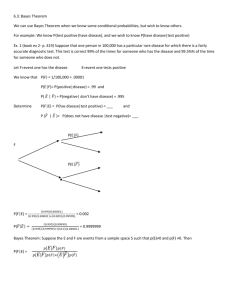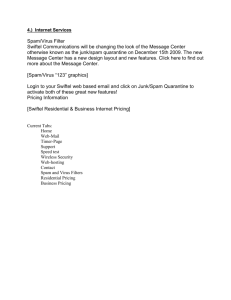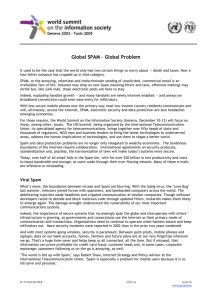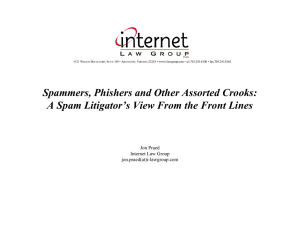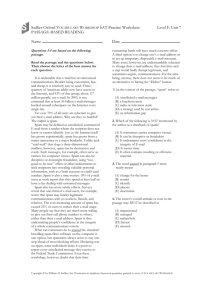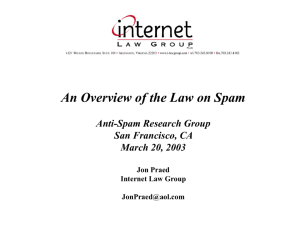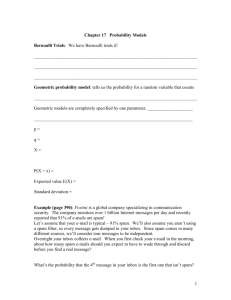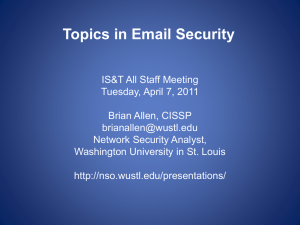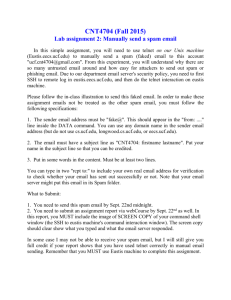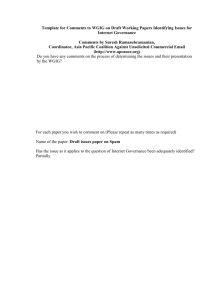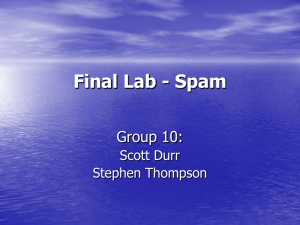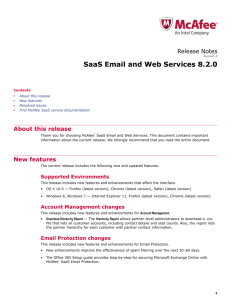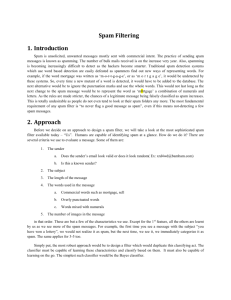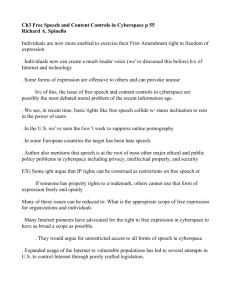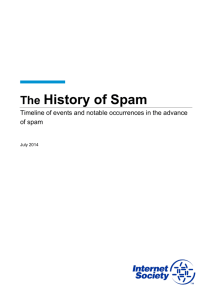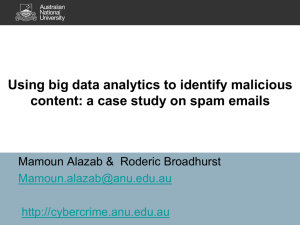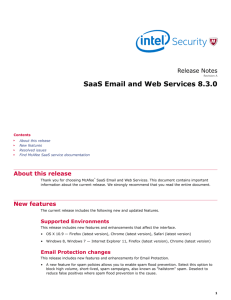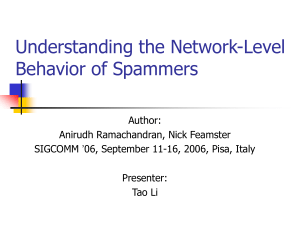Spam growth surpasses `Storm` virus
advertisement
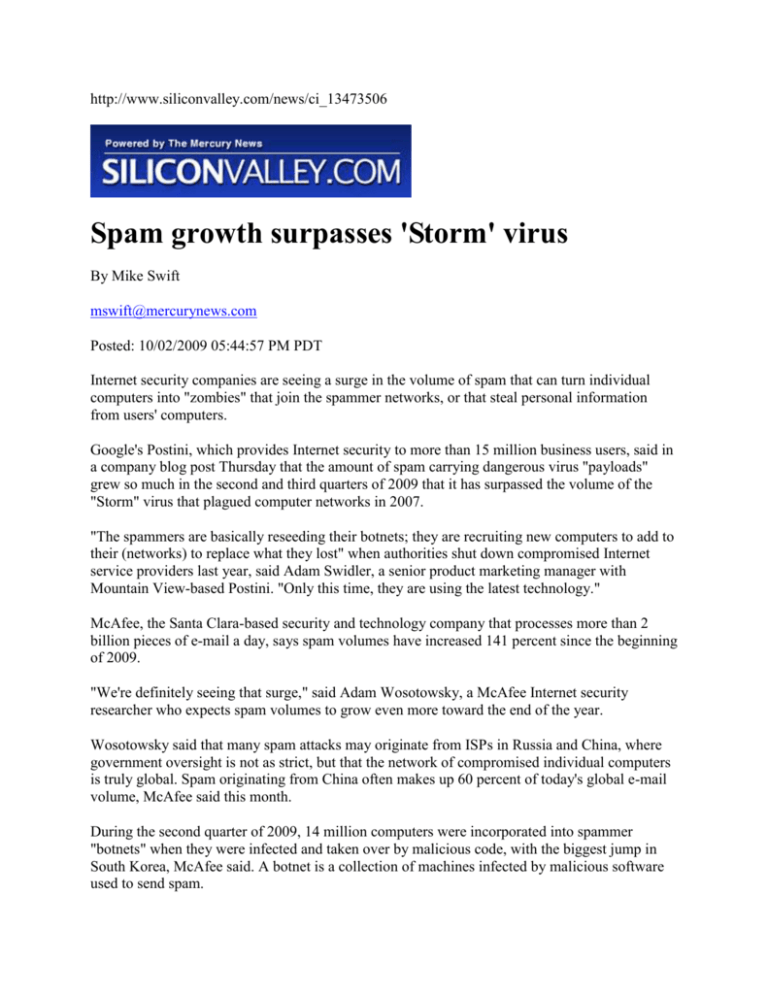
http://www.siliconvalley.com/news/ci_13473506 Spam growth surpasses 'Storm' virus By Mike Swift mswift@mercurynews.com Posted: 10/02/2009 05:44:57 PM PDT Internet security companies are seeing a surge in the volume of spam that can turn individual computers into "zombies" that join the spammer networks, or that steal personal information from users' computers. Google's Postini, which provides Internet security to more than 15 million business users, said in a company blog post Thursday that the amount of spam carrying dangerous virus "payloads" grew so much in the second and third quarters of 2009 that it has surpassed the volume of the "Storm" virus that plagued computer networks in 2007. "The spammers are basically reseeding their botnets; they are recruiting new computers to add to their (networks) to replace what they lost" when authorities shut down compromised Internet service providers last year, said Adam Swidler, a senior product marketing manager with Mountain View-based Postini. "Only this time, they are using the latest technology." McAfee, the Santa Clara-based security and technology company that processes more than 2 billion pieces of e-mail a day, says spam volumes have increased 141 percent since the beginning of 2009. "We're definitely seeing that surge," said Adam Wosotowsky, a McAfee Internet security researcher who expects spam volumes to grow even more toward the end of the year. Wosotowsky said that many spam attacks may originate from ISPs in Russia and China, where government oversight is not as strict, but that the network of compromised individual computers is truly global. Spam originating from China often makes up 60 percent of today's global e-mail volume, McAfee said this month. During the second quarter of 2009, 14 million computers were incorporated into spammer "botnets" when they were infected and taken over by malicious code, with the biggest jump in South Korea, McAfee said. A botnet is a collection of machines infected by malicious software used to send spam. The U.S. Department of Homeland Security's Computer Emergency Readiness Team released a warning this week about one of those spam attacks — an e-mail that purports to come from the IRS, which may contain a subject line that says, "Notice of Underreported Income." If users click on an attachment or link in the e-mail, their computer may be infected with the "Zeus Trojan" code. "Zeus can then ransack infected computers for financial information which can be used to empty bank accounts," according to a company post from MX Logic, an Internet security company acquired by McAfee. "Some estimates place the financial losses from the Zeus Trojan at over $1 million a day." One thing that has changed dramatically over the past year is how quickly spammers can recover when authorities take down an ISP they have been using, security experts said. When authorities last November disconnected the spammer-compromised McColo, a San Jose Web-hosting company, there was a 70 percent drop in the volume of spam overnight, Swidler said. "We were all looking at the charts the next day, going, 'Whoa, is this the end of spam?' " he said. Nope. Postini said later takedowns of compromised ISPs, such the Aug. 1 disconnection of Real Host, a large Latvia-based ISP, provided a much smaller, and shorter, reduction in spam. During the height of the most recent attack, Postini said, its data centers have been blocking more than 100 million viruses every day. Contact Mike Swift at 408-271-3648. Follow him on Twitter at twitter.com/swiftstories.


